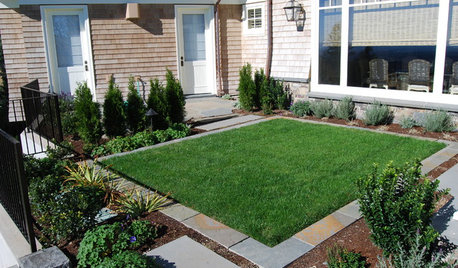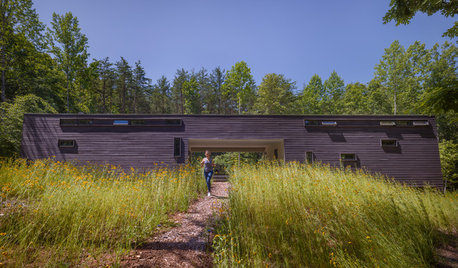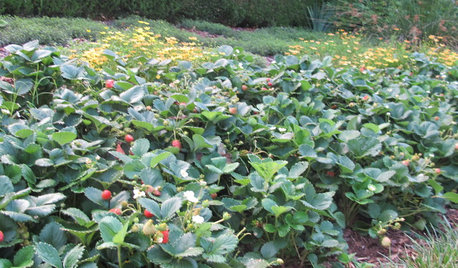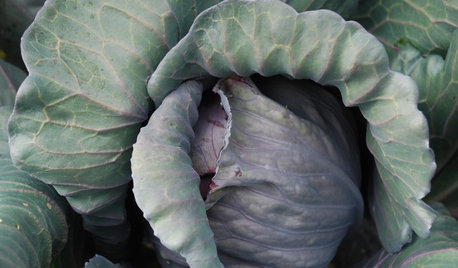Sod Webworms Again
skoot_cat
16 years ago
Related Stories

GARDENING GUIDESHow to Prep Your Ground for a Healthy New Lawn
Seed or sod that falls on weedy, lumpy soil is a wasted effort. Follow these steps to ensure that your new lawn will thrive
Full Story
GARDENING GUIDESHow to Plant a New Lawn From Seed
Choose from more grass varieties and save money over sod by starting your lawn from seed
Full Story
EXTERIORSWhere Front Yards Collide: Property Lines in Pictures
Some could be twins; others channel the Odd Couple. You may never look at property boundaries the same way again
Full Story
GREEN BUILDINGHow to Recycle Your Kitchen
Instead of adding to the junk pile — and paying landfill fees — get rid of old appliances, cabinets and countertops the ecofriendly way
Full Story
ARCHITECTUREDesign Workshop: The Modern Dogtrot
Some surprising facts and new twists on this utilitarian favorite
Full Story
FUN HOUZZ10 Truly Irritating Things Your Partner Does in the Kitchen
Dirty dishes, food scraps in the sink — will the madness ever stop?
Full Story
REGIONAL GARDEN GUIDESSoutheast Gardener's September Checklist
Fertilize strawberries, plant a tree or two and beckon hummingbirds to your Southern garden this month
Full Story
PETSHouzz Call: Show Us Your Summer-Loving Dog!
Share a photo of your pooch kicking back in the backyard, helping you in the workshop or enjoying your favorite summer getaway
Full Story
ARCHITECTUREGet a Perfectly Built Home the First Time Around
Yes, you can have a new build you’ll love right off the bat. Consider learning about yourself a bonus
Full Story
REGIONAL GARDEN GUIDESWelcome the Turning Season: Advice for Your September Garden
Roll with the cooler weather by planting away. Our gardening guides tell you what plant picks are best for each U.S. region
Full StorySponsored






ronalawn82
greenguerrilla
Related Professionals
Rancho Cordova Landscape Architects & Landscape Designers · Redondo Beach Landscape Architects & Landscape Designers · Fairhope Landscape Contractors · San Rafael Landscape Contractors · Westford Landscape Contractors · Easton Driveway Installation & Maintenance · Grand Rapids Driveway Installation & Maintenance · Palm Desert Driveway Installation & Maintenance · Rehoboth Driveway Installation & Maintenance · San Jose Driveway Installation & Maintenance · East Providence Driveway Installation & Maintenance · La Canada Flintridge Fence Contractors · Skokie Fence Contractors · Statesville Fence Contractors · Wilson Fence Contractorsskoot_catOriginal Author
dchall_san_antonio
dchall_san_antonio
skoot_catOriginal Author